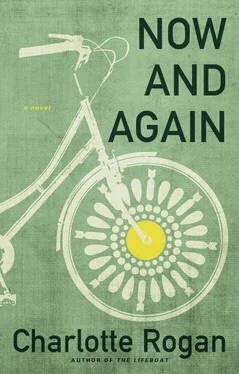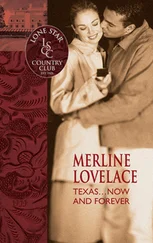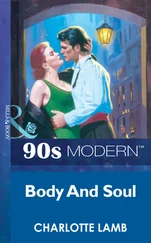Penn was more and more excited by the idea. “Everybody’s bringing something to the table,” he said. Then he gave a speech about how it had taken Odysseus ten years to get home and how Agamemnon was murdered by his wife’s lover when he finally returned from Troy.
“Not that that’s relevant,” said Kelly, but Danny wanted to know what had taken Odysseus so long.
“It’s not that he couldn’t get home,” said the captain. “It’s that he didn’t want to. He knew he couldn’t be a hero sitting around at home.”
On the drive north the next day, Penn was acutely aware of the three big men with him in the van — of the body odor and the restlessness. It was as if the vehicle contained live but quiet rounds. They had been driving for an hour when Kelly asked where they were going.
“We’ve got to establish an outpost,” said Penn. “The question is, where should it be?”
Instinct was taking him north, toward Louise in New York and his family in Greenwich as if that was his destiny, but he couldn’t decide if he was trying to become something he wasn’t or trying to avoid being something he was. Then Le Roy was hungry, so they stopped and bought sandwiches, and then they stopped for gas, and a little while after that Danny said he wanted to get out and walk around. Kelly wanted to keep going, but Le Roy had to take a leak.
“We were just at the gas station for Chrissakes,” said Kelly. “Why didn’t you do whatever you had to do there?”
“Anybody got an empty bottle?” asked Le Roy, which caused Penn to declare, “We’re almost there,” even though he still had no idea where they were headed.
WELCOME TO NEW JERSEY said a sign. “New Jersey,” said Penn. “Why the hell not?”
He parked the car on a street lined with dilapidated buildings, which, on closer inspection, showed small signs of improvement: a repaved driveway, windows with yellow stickers in the corners, a fresh coat of whitewash on the brick, a woman pushing a stroller along the sidewalk, a sign that said GROW WITH TRENTON! LOCATE YOUR BUSINESS HERE!
“This could be it,” said Kelly, and Penn agreed that it could be. It was as if Louise’s magnet had been turned around and what he felt now was its strong repellent force, a sensation that caused him to view the railroad tracks that divided the neighborhood and the litter caught in the uncut roadside grass and the boarded-up community pool and the men loitering on the corner as selling points, at least in an enemy-of-my-enemy kind of way, so that even if Louise was hardly his enemy, he knew that by saying yes to the neighborhood, he was taking a stand against some of the things she stood for — unearned privilege, for instance, and willful ignorance of how most people lived.
They spent the night at a motel near the highway, and the next day Penn rented space on the first floor of a warehouse and the group dug in. In anticipation of winter, they purchased a portable space heater and weather stripping for the windows. They bought a mini fridge and a microwave from Best Buy, cots and plastic storage lockers from Target, and heavy-duty sleeping bags from REI. They arranged the cots and lockers along one wall and set up folding tables and chairs and computers from an office supply store along another. They bought desks off of Craigslist and argued about who was responsible for which chores and what were the consequences for laziness or dereliction.
“This ain’t the army, man,” said Kelly.
“I know, I know,” said Penn, backing off.
But a natural discipline seemed to take hold of the men according to their interests and abilities. Penn went out early and came back with breakfast. Then he set to work identifying donors to solicit and causes to promote. Danny installed the weather stripping and cleaned because he had the strictest standards for how those things should be done. Le Roy ran five miles every morning before gluing himself to his computer for the rest of the day. And Kelly set up the office space and worked the longest hours, making spreadsheets and organizing files and researching how Internet advertising worked. “Who said I can’t be a businessman?” he asked when the first check arrived in the mail. “Who said we can’t make this sucker pay?”
The room had barred windows on three sides, and to the north, it looked out onto a railroad track. Every hour or so a train rumbled through, shaking the glass in the windows and causing Danny to dive for cover behind a couch they had found discarded on a curb.
“Hit the deck, Danny!” Le Roy would say if Kelly didn’t say it first, and then Kelly would say, “New Jersey! At least it ain’t the fucking Bronx.”
The neighborhood was just squalid enough for Penn to imagine that they were still fighting for their country — particularly at night, when the businesses were shuttered and feral cats ransacked the garbage cans and the only light came from a lone streetlamp halfway down the block. Every now and then Penn would shout, “Into the breach, boys. Let’s stop the goddamn war!” He was mostly play-acting, mostly putting on a personality he had first observed in his father at the yearly picnic he held for the families of his employees on the sweeping grounds of the Greenwich estate. “Who’s ready for the sack race?” the old man would call out. “Who wants to win a prize?” And the children would flock to him as if he were good with children, which, on that one day of the year, he was.
One evening, something unusual in the cocoon of nighttime stillness drew Penn outside, where he walked up and down the block, checking that the grilles on the ground-floor windows of the businesses were secure and across the tracks to a dilapidated apartment house where a woman was sitting in the darkness smoking a cigarette and sobbing.
“I thought I heard something,” said Penn.
“It’s just them cats,” she said.
“Is everything okay?”
“Yeah,” she said. “Ever’thin’s okay.”
“We’re just down the block if you need anything.”
“I’ll remember that,” she said, but she never came asking for anything, only waved at Penn when he walked up the street now and then on what he called “patrol” or when he went the long way around on his morning coffee run so he could see her sending her three kids off to school. Each time, she waved to him before going back inside the building, and one day Penn realized that what she needed wasn’t him patrolling the streets at night. What she needed was a job. “Hey,” he called out the next time he saw her. “You don’t know anybody who wants to cook and clean for a bunch of ex-soldiers, do you?”
“I jes might,” she said. “I jes might know someone like that.”
Meanwhile, the upstairs tenants clomped up the warehouse stairs to their office in the morning and down again in the afternoon in pursuit of their own entrepreneurial dreams, and now and then they said, “How ya doin’?” when Penn ran into them on the front walk, where some faded hydrangeas from an overgrown bed spilled onto the pavement. Across the street, a car parts salvage business had taken over an empty building, and two months after the soldiers moved in, a commercial laundry service opened up. In the white-gray light of early morning when he was on the breakfast run, Penn allowed himself to think that something good was starting up — the website of course, but also the little neighborhood near the tracks.
8.6 Joe Kelly
The first thing they put up on the site after the pictures from the protest was a schedule of other protests. Then they created a message board where returning soldiers could post their stories of the war. In the back of his mind, Kelly was wondering how they were going to make a bunch of stories pay, but for the time being he was happy just not to be living with his folks.
Читать дальше












